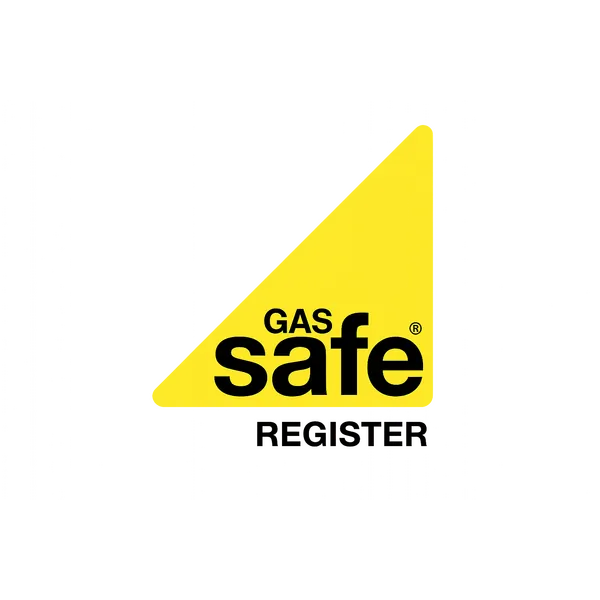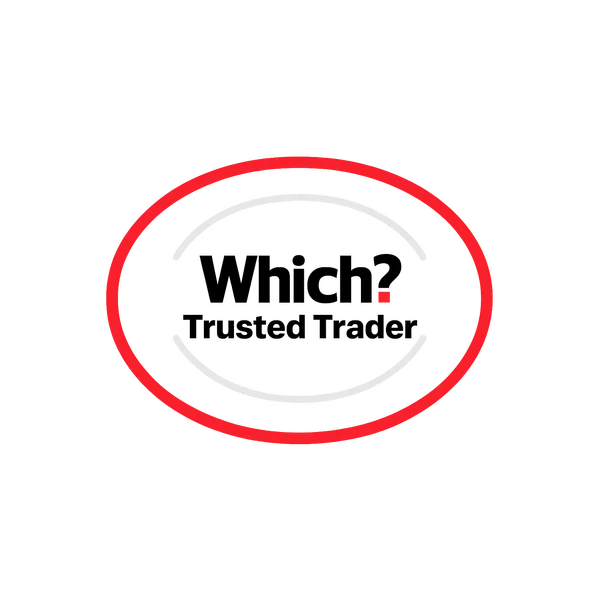The Ultimate Cost of Solar Panel Calculator for Your Home Budget
See our great reviews
Cost of Solar Panel Calculator: Unlock the Power of Solar Energy for Your Home
Thinking of using the sun to slash your electricity bills and carbon footprint? A solar panel calculator (also known as a solar energy calculator) can help you make an informed decision about getting asolar panelsystem for your home or business. Let’s dive in and see how this tool can help you estimate costs, savings and the overall benefits of going solar.
The Calculator:
How much to install a solar panel system?Get a system cost now.
Put in the amount of electricity you use. Add in your electricity price, and whether or not you would like solar batteries.
Then you can download an instant quote.
Your Energy Needs
To choose the rightsolar panel size you needto know your daily energy usage. Here’s how to do it:
- Check your bills to see your energy usage patterns.
- How many people live in your household and what appliances do you use daily.
- Use a solar energy calculator to calculate your needs andsolar panel output.
Check your bills to see your energy usage patterns.
How many people live in your household and what appliances do you use daily.
Use a solar energy calculator to calculate your needs andsolar panel output.
The average UK household uses 2,700 kWh of electricity per year. But yours may be different.
Solar Panel Costs
Solar panels in the UKcost between £5,000 to £12,000 depending on various factors such as system size, panel type and installation complexity. Knowing the solar panel installation cost is key to budgeting and planning your investment. Solar panels in the UK including installation cost cost between £5,000 to £12,000 depending on various factors such as system size, panel type and installation complexity.
For a 3 bedroom house the average cost of a 3.5 kWp solar panel system is around £7,026.
Here’s a breakdown of average solar system prices:
Solar System Size
Understanding the size solar panel system you need is crucial for determining the number of panels and overall cost.
- 3 kW System: 6-8 panels, priced between £5,000 and £6,000.
- 4 kW System: 8-10 panels, priced between £6,000 and £8,000.
- 5 kW System: 10-12 panels, priced between £8,000 and £9,000.
- 6 kW System: 12-15 panels, priced between £9,000 and £11,000.
3 kW System: 6-8 panels, priced between £5,000 and £6,000.
4 kW System: 8-10 panels, priced between £6,000 and £8,000.
5 kW System: 10-12 panels, priced between £8,000 and £9,000.
6 kW System: 12-15 panels, priced between £9,000 and £11,000.
Solar Panels
What are Solar Panels and How Do They Work?
Solar panels are clever devices that convert sunlight into electricity through a process called photovoltaics (PV). These panels are made up of many small photovoltaic cells, usually made from semiconducting materials like silicon. When sunlight hits a photovoltaic cell it excites the electrons in the material causing them to move and generate an electric current. This current is then collected and passed through an inverter which converts the DC power into AC power for use in homes and businesses.
By using the power of the sun solar panels offer a renewable energy source that can reduce our reliance on fossil fuels and lower our carbon footprint. For homeowners and businesses getting solar panels can mean big savings on bills and a more sustainable and eco-friendly future.
Types of Solar Panel Installations
When it comes to harnessing solar energy, there are several types of solar panel installations to consider, each with its own set of advantages and potential drawbacks. Understanding these options can help you choose the best system for your home or business.
- Roof-Mounted Solar Panels: The most common type of solar panel installation, roof-mounted systems are directly attached to the roof of a building. They are ideal for properties with sufficient roof space and good sun exposure. These installations are generally more straightforward and can be less expensive than other types.
- Ground-Mounted Solar Panels: These systems are installed on the ground, making them suitable for properties with ample land but limited roof space. Ground-mounted panels can be positioned for optimal sun exposure and are often easier to maintain and clean. However, they typically require more space and can be more expensive to install.
- Building-Integrated Solar Panels (BIPV): These panels are integrated into the building’s design, serving as both a roofing material and a solar energy generator. BIPV systems can be aesthetically pleasing and save on material costs, but they are usually more expensive and complex to install.
Roof-Mounted Solar Panels: The most common type of solar panel installation, roof-mounted systems are directly attached to the roof of a building. They are ideal for properties with sufficient roof space and good sun exposure. These installations are generally more straightforward and can be less expensive than other types.
Ground-Mounted Solar Panels: These systems are installed on the ground, making them suitable for properties with ample land but limited roof space. Ground-mounted panels can be positioned for optimal sun exposure and are often easier to maintain and clean. However, they typically require more space and can be more expensive to install.
Building-Integrated Solar Panels (BIPV): These panels are integrated into the building’s design, serving as both a roofing material and a solar energy generator. BIPV systems can be aesthetically pleasing and save on material costs, but they are usually more expensive and complex to install.
Each type of solar panel installation has its own set of benefits and considerations. The right choice for your property will depend on factors such as roof size and orientation, sunlight exposure, and your budget for the installation.
How Suitable is Your Home for Solar Panels
Shading and Clear Roof Area
When assessing your home’s suitability for solar panels it’s important to consider the amount of shading and clear roof area. Shading from trees, buildings or other obstructions can reduce the energyoutput of solar panelsby a lot so it’s essential to make sure your roof gets full sun for most of the day.
Clear roof area is just as important forsolar panel installation. The size and shape of your roof will determine how many panels you can fit and this will impact the overall efficiency and output of your solar panel system. Knowing your roof’s dimensions and layout will help you and your solar panel installer design a system that maximises energy production and savings.
Direction of Your Property and Sun Hours Per Day
The direction of your property and number of sun hours per day are key factors in determining your home’s suitability for solar panels. Solar panels perform best when facing south as this direction gets the most sunlight throughout the day. East and west facing roofs can also be an option depending on your situation.
The number of sun hours per day will affect the amount of energy your solar panels can produce. In the UK the average number of sun hours is between 3-5 hours per day depending on location and season. A well designed solar panel system will take these factors into account to maximise energy production and efficiency.
By considering shading, roof area, property direction and sun hours you can determine if your home is a candidate for solar panels. This informed approach will help you invest in a solar panel system that meets your energy needs and gives you long term savings on your bills.
The Right Number of Panels for Your Home
Determining the right number of solar panels for your home is crucial for maximizing efficiency and savings. Several factors come into play, including the size of your home, the amount of sunlight it receives, and your overall energy consumption.
A typical solar panel system for a home usually includes between 10 and 20 panels, but larger systems can have up to 50 or more panels. To find the optimal number of panels, a solar panel installer will conduct a thorough assessment of your home’s energy needs and sun exposure. This assessment will consider:
- Roof Size and Orientation: The size and direction of your roof will influence how many panels can be installed and how much sunlight they will receive.
- Shading: Trees, buildings, and other obstructions can affect the efficiency of your solar panels. An installer will evaluate the shading on your roof to determine the best placement for the panels.
- Energy Consumption: Your current electricity usage will help determine the size of the solar panel system you need. Homes with higher energy consumption will require more panels to meet their needs.
Roof Size and Orientation: The size and direction of your roof will influence how many panels can be installed and how much sunlight they will receive.
Shading: Trees, buildings, and other obstructions can affect the efficiency of your solar panels. An installer will evaluate the shading on your roof to determine the best placement for the panels.
Energy Consumption: Your current electricity usage will help determine the size of the solar panel system you need. Homes with higher energy consumption will require more panels to meet their needs.
By taking these factors into account, a professional solar panel installer can recommend the right number of panels to ensure your system is both efficient and cost-effective.
How a Solar Panel Cost Calculator Works
Asolar panel cost calculatortakes into account the following factors to give you an instant estimate of your solar panel system:
- Location and Roof Size: Your location affects solar radiation levels and roof size determines the size of solar panel system you can fit.
- Energy Consumption: Your current electricity usage helps determine the size of your solar panel system.
- Panel Type and Efficiency: Different solar panels have different efficiencies and costs and understanding solar panel efficiency is key to estimating energy output and savings.
- Installation Costs: These can vary depending on the complexity of the installation and your property, affecting the overall solar panel installation cost.
- Available Incentives: Government incentives like the Smart Export Guarantee (SEG) schemeaffect your overall costs and savings.
- Accurate Cost Estimates: Get a tailored quote for your situation so you can budget for your solar investment.
- Potential Savings Projections: See how much you could save on your energy bill over time. An average UK household can save between £270 and £640 per year on their electricity bill.
- System Size Recommendation: Find out the best size of your solar panel system and how many panels you need based on your energy usage and roof size.
- Return on Investment Calculation: How long will your solar panels pay for themselves through energy savings. On average solar panels in the UK pay for themselves in 9-12 years.
- Environmental Impact: Calculate the reduction in your carbon footprint by switching to solar energy.
Location and Roof Size: Your location affects solar radiation levels and roof size determines the size of solar panel system you can fit.
Energy Consumption: Your current electricity usage helps determine the size of your solar panel system.
Panel Type and Efficiency: Different solar panels have different efficiencies and costs and understanding solar panel efficiency is key to estimating energy output and savings.
Installation Costs: These can vary depending on the complexity of the installation and your property, affecting the overall solar panel installation cost.
Available Incentives: Government incentives like the Smart Export Guarantee (SEG) schemeaffect your overall costs and savings.
Accurate Cost Estimates: Get a tailored quote for your situation so you can budget for your solar investment.
Potential Savings Projections: See how much you could save on your energy bill over time. An average UK household can save between £270 and £640 per year on their electricity bill.
System Size Recommendation: Find out the best size of your solar panel system and how many panels you need based on your energy usage and roof size.
Return on Investment Calculation: How long will your solar panels pay for themselves through energy savings. On average solar panels in the UK pay for themselves in 9-12 years.
Environmental Impact: Calculate the reduction in your carbon footprint by switching to solar energy.
Additional Considerations
When using a solar panel cost calculator remember:
- Solar Batteries: Adding a solar battery will increase your upfront cost but could give you greater long term savings especially if you plan to install solar panels. The average cost of a solar battery for a 3 bedroom house is £2,500.
- Roof Orientation: South facing roofs get the most electricity but east and west facing roofs can also be an option.
- Maintenance Costs: Solar panels require minimal maintenance but factor in occasional cleaning and inverter replacement after 10-15 years.
- Energy Efficiency: Improve your home’s energy efficiency and you may need a smaller solar panel system which could save you money.
- Excess Energy: How will you store, sell or use any excess energy generated by your solar panels to maximise efficiency and savings.
Solar Batteries: Adding a solar battery will increase your upfront cost but could give you greater long term savings especially if you plan to install solar panels. The average cost of a solar battery for a 3 bedroom house is £2,500.
Roof Orientation: South facing roofs get the most electricity but east and west facing roofs can also be an option.
Maintenance Costs: Solar panels require minimal maintenance but factor in occasional cleaning and inverter replacement after 10-15 years.
Energy Efficiency: Improve your home’s energy efficiency and you may need a smaller solar panel system which could save you money.
Excess Energy: How will you store, sell or use any excess energy generated by your solar panels to maximise efficiency and savings.
Benefits of Solar Panels
Investing in solar panels offers a multitude of benefits for both homes and businesses. Here are some of the key advantages:
- Reduced Energy Bills: Solar panels generate electricity from sunlight, significantly reducing the amount of energy you need to purchase from the grid. This can lead to substantial savings on your energy bills.
- Increased Energy Independence: With solar panels, you can produce your own electricity, reducing your reliance on external energy sources. This can be particularly beneficial during power outages.
- Environmental Benefits: Solar panels are a renewable energy source that helps reduce greenhouse gas emissions. By switching to solar energy, you contribute to a cleaner, more sustainable environment.
- Increased Property Value: Homes and businesses with solar panel systems often see an increase in property value. Potential buyers are attracted to the long-term savings and environmental benefits of solar energy.
- Low Maintenance: Solar panels require minimal maintenance and can last for up to 30 years or more. Occasional cleaning and periodic checks are usually all that’s needed to keep them running efficiently.
Reduced Energy Bills: Solar panels generate electricity from sunlight, significantly reducing the amount of energy you need to purchase from the grid. This can lead to substantial savings on your energy bills.
Increased Energy Independence: With solar panels, you can produce your own electricity, reducing your reliance on external energy sources. This can be particularly beneficial during power outages.
Environmental Benefits: Solar panels are a renewable energy source that helps reduce greenhouse gas emissions. By switching to solar energy, you contribute to a cleaner, more sustainable environment.
Increased Property Value: Homes and businesses with solar panel systems often see an increase in property value. Potential buyers are attracted to the long-term savings and environmental benefits of solar energy.
Low Maintenance: Solar panels require minimal maintenance and can last for up to 30 years or more. Occasional cleaning and periodic checks are usually all that’s needed to keep them running efficiently.
By installing solar panels, you not only save money on your energy bills but also contribute to a greener future and increase the value of your property.
Finding a Good Solar Panel Installer
Choosing the right solar panel installer is a critical step in ensuring a successful and efficient solar panel installation. A good installer will assess your energy needs, design a system tailored to your property, and provide ongoing support and maintenance.
How to Find a Good Solar Panel Installer
Here are some tips to help you find a reliable and certified solar panel installer:
- Referrals: Ask friends or family members who have installed solar panels for recommendations. Personal referrals can provide valuable insights into the installer’s quality of work and customer service.
- Online Reviews: Check online reviews and ratings on sites like Yelp or Google. Look for installers with consistently high ratings and positive feedback from customers.
- Local Companies: Contact local solar panel installation companies and request quotes and references. Comparing multiple quotes can help you find the best deal and ensure you’re getting quality service.
Referrals: Ask friends or family members who have installed solar panels for recommendations. Personal referrals can provide valuable insights into the installer’s quality of work and customer service.
Online Reviews: Check online reviews and ratings on sites like Yelp or Google. Look for installers with consistently high ratings and positive feedback from customers.
Local Companies: Contact local solar panel installation companies and request quotes and references. Comparing multiple quotes can help you find the best deal and ensure you’re getting quality service.
By following these tips, you can find a trustworthy solar panel installer who will help you maximise the benefits of your solar panel system.
Next Steps
Using a solar panel cost calculator is a great first step in your solar journey but for the most accurate assessment it’s best to speak to a professional for solar panel installations. They will survey your property and give you a quote tailored to your specific needs and circumstances so you get the most out of your solar panel system.
By going solar you’re not just saving money on your energy bill you’re also helping to create a cleaner, greener future. With a solar panel cost calculator you can make an informed decision about whether solar is right for your home or business.
Solar Panel Installation and FAQ’s
Get Started with Solar Panels
Dive into the world of solar panel installation. Insights into flat roof setups, possible energy savings, how it works, panel options, and more.
- Best House Solar Panels Compared
- Average Solar Panel Costs
- What Kind Of System Do I Need?
- Do I Need Planning Permission in The UK?
- Solar Panel Sizes Explained
- How Long Do Solar Panels Last?
- How Do Panels Work?
- Does Solar PV Work In Cloudy Days?
- Improving Your EPC With Solar PV
- How Much Do Solar Panels Save On Your Energy Bills?
- Solar Inverters Explained
- How much electricity does a solar panel produce?
- Is My Roof Suitable For A System?
Best House Solar Panels Compared
Average Solar Panel Costs
What Kind Of System Do I Need?
Do I Need Planning Permission in The UK?
Solar Panel Sizes Explained
How Long Do Solar Panels Last?
How Do Panels Work?
Does Solar PV Work In Cloudy Days?
Improving Your EPC With Solar PV
How Much Do Solar Panels Save On Your Energy Bills?
Solar Inverters Explained
How much electricity does a solar panel produce?
Is My Roof Suitable For A System?
Solar Panel Installation and Types
Discover how to participate in the SEG scheme. Navigate planning permissions in the UK while exploring DNO approval and more.
- The Process of Installation
- Flat Roof Solar Systems Explained
- In-Roof Solar Systems
- Free Solar Panel Installation With ECO4 Grant
- Solar Panels For Farm Buildings
- Solar Panels For Commercial Properties
- DNO Approval: What Is It and How Does It Work?
- Solar, Inverter, and Battery Packages
- Are Solar Roof Tiles Worth It? The Pros & Cons
The Process of Installation
Flat Roof Solar Systems Explained
In-Roof Solar Systems
Free Solar Panel Installation With ECO4 Grant
Solar Panels For Farm Buildings
Solar Panels For Commercial Properties
DNO Approval: What Is It and How Does It Work?
Solar, Inverter, and Battery Packages
Are Solar Roof Tiles Worth It? The Pros & Cons














